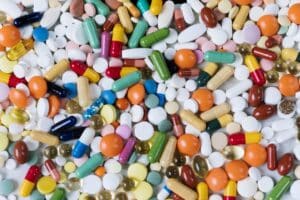
One of the world’s most in-demand medications has just earned a new designation: essential. The World Health Organization (WHO) has added semaglutide, the active ingredient in Ozempic and Wegovy, to its Model List of Essential Medicines, alongside tirzepatide and other GLP-1 drugs.
This move is more than symbolic. By declaring semaglutide and tirzepatide “essential,” the WHO is signaling to governments worldwide that these treatments for type 2 diabetes and obesity are not luxuries but critical tools for public health.
What does it mean to be an “essential” medicine?
The WHO’s essential medicines list has existed since 1977. It’s designed to highlight drugs that provide the greatest health benefits, with the goal of improving affordability and access globally.
Today, the list includes 523 medicines for adults and 374 for children. More than 150 countries rely on it to guide decisions about which medications to prioritize for purchase, insurance coverage, and distribution.
When a drug makes the list, it’s often a catalyst for lower prices, expanded insurance coverage, and wider availability. As Yukiko Nakatani, WHO’s assistant director-general for health systems, put it:
The new editions of essential medicines lists mark a significant step toward expanding access to new medicines with proven clinical benefits and with high potential for global public health impact.
Why GLP-1 drugs are game-changers
As we’ve discussed before, the GLP-1 receptor agonists mimic natural hormones that regulate hunger, metabolism, and insulin response. For diabetes, they reliably help patients control blood sugar, reducing complications and improving long-term outcomes. For obesity, they are far more effective for weight loss than diet and exercise alone, helping many patients lose significant, sustained weight. And for overall health, by addressing obesity and diabetes, they also lower risks for cancer, cardiovascular disease, and other chronic illnesses.
Tirzepatide goes a step further by targeting not just GLP-1 but also GIP-1, another hormone involved in hunger regulation. The impact is already measurable. In the U.S., 2023 marked the first year in a decade that adult obesity rates declined, a trend many experts attribute to GLP-1s.
The accessibility is a problem, however
Despite their promise, GLP-1s are often out of reach for the people who need them most. This is due to a number of reasons, including:
- High cost. Even after price reductions, monthly expenses can run into the hundreds of dollars.
- Limited insurance coverage. In the U.S., many public and private insurers do not cover these drugs for obesity, restricting access to wealthier patients.
- Global inequity. In many countries, access is even scarcer, despite diabetes and obesity being rising global health threats.
Deusdedit Mubangizi, WHO’s director of policy and standards for medicines, emphasized the urgency of addressing this gap:
Achieving equitable access to essential medicines requires a coherent health system response backed by strong political will, multisectoral cooperation, and people-centered programs that leave no one behind.
What the WHO’s decision could change
By adding semaglutide, tirzepatide, dulaglutide, and liraglutide to its essential medicines list, the WHO is paving the way for broader access. Some potential outcomes include generic development, for one. Canada is expected to approve the first generic semaglutide as early as 2026. In the U.S., however, generics likely won’t arrive until 2031.
The designation could also pressure drugmakers to reduce prices and encourage governments to negotiate more aggressively. The other two potential outcomes include better insurance coverage as public and private insurers may be more willing to cover drugs considered essential, and wider distribution, where primary care doctors could play a bigger role in prescribing GLP-1s, not just specialists.
Adding GLP-1s to the WHO’s essential medicines list is about more than lowering blood sugar or reducing waistlines. It’s a recognition that obesity and diabetes are among the world’s most pressing health challenges, and that effective tools to treat them must be accessible to all, not just the privileged few. As more countries act on this designation, millions of people may finally gain access to medications that can improve — and even save — their lives.
How it will play out globally remains to be seen, but let’s choose to be optimistic.
Your responses and feedback are welcome!
Source: “Ozempic Is an ‘Essential’ Drug, WHO Says as Agency Calls for Cheaper Generics,” Gizmodo, 9/5/25
Source: “WHO Includes Popular Anti-Obesity Drugs on Essential Medicines List for Diabetes Control,” Health Policy Watch, 9/5/25
Image by cottonbro studio/Pexels

 FAQs and Media Requests:
FAQs and Media Requests: 











